Foraging in Ontario - Autumn olive
It does bear fruit in autumn, but it certainly isn't an olive.
Autumn olive (Elaeagnus umbellata) also known as Japanese silverberry, this introduced species occurs throughout southern Ontario and most of the United States. The berries have a speckled appearance with tiny white dots and are moderately sweet to sour. Prepare to chew and spit out the woody seeds.
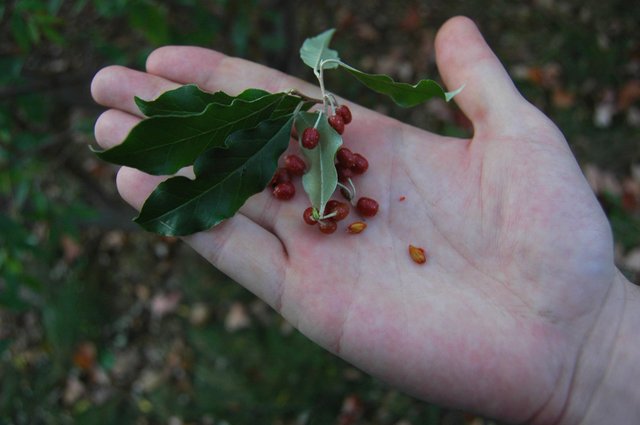
This is a picture of the autumn olive just about to flower during the spring. You can tell it apart by its speckled leaves if you look closely. Like the berries, it's a useful distinguishing feature for this plant. It grows as a shrubby tree, rarely more than a few metres tall. It definitely has a silvery appearance on parts of the plant such as the underside of the leaves and stems, living up to its common name.
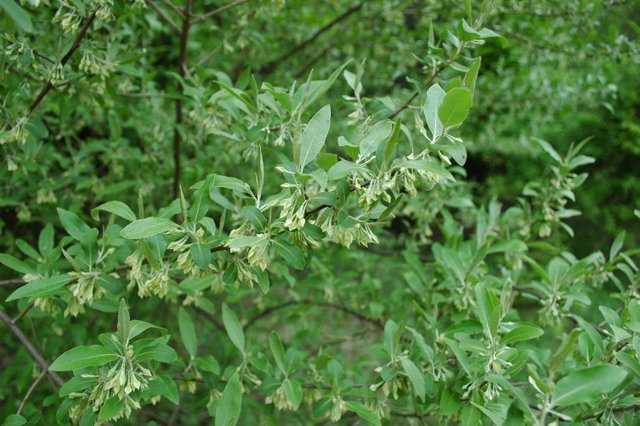
They tend to grow in areas where they can get lots of sunlight, in open fields and forest edges. Their seeds are dispersed far and wide by birds and other animals. Often times these fruit in abundance, and you can collect a substantial amount of red berries. They taste great eaten fresh, but there are creative uses as well. Some people, especially Canadians like myself love to put ketchup on our food. When pureed with the seed removed, it's said that the paste made from this fruit makes a great ketchup substitute that's high in vitamin C as well.
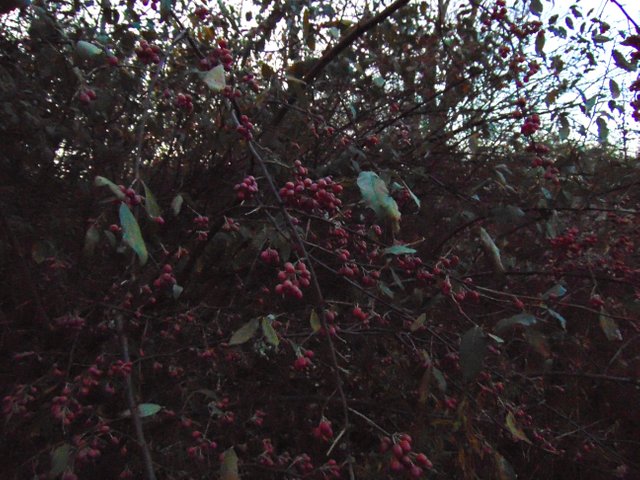
Their look is really unique, with tiny specks covering each berry. It's a good distinguishing feature that allows you to tell it apart from other less edible red berries. Next time you're out foraging this fall, see if you can identify this common edible. Happy hunting!
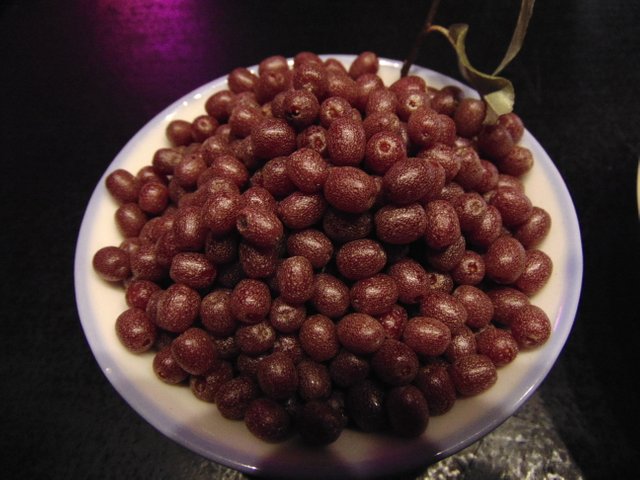
All photos are taken by myself and free for re-use under CC0 (public domain).
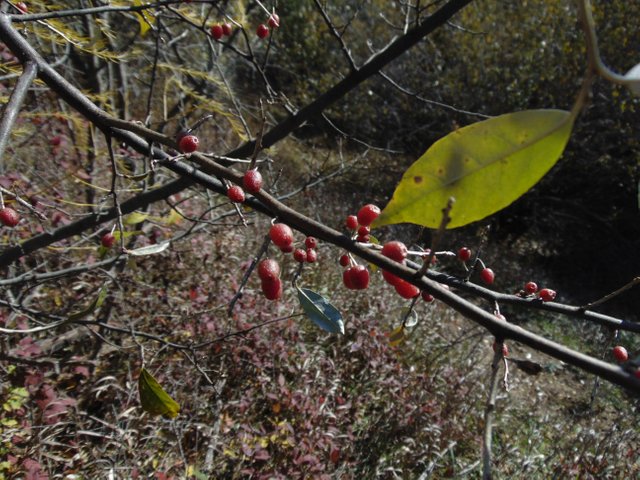
Upvoted by @foraging-trail
Thank you for following and upvoting @foraging-trail
You can find out more about the Steemit Foraging community and guidelines for being upvoted by the @foraging-trail here and here. Join us In the Foraging-Trail and let's discuss Foraging Related Topics
This is one fruit that is better when it's good and ripe, not just colored up! It can really create dry-mouth if the berries aren't really good and ripe. They aren't quite as bad an an unripe American Persimmon, but still pretty drying. To me, once they are soft, they are a lot better! These plants spread all over Kansas during the time I was a kid there. They were used for windbreaks, but spread across the countryside so fast! It would be fun to make ketchup out of them, but I've never thought of that. Enjoy those autumn olives! :D